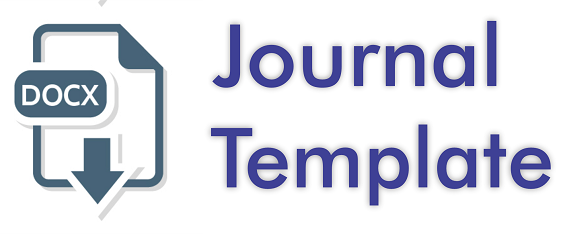Implementasi Manajemen Risiko Berbasis Syariah Pada Lembaga Keuangan Syariah
DOI:
https://doi.org/10.59107/ri.v2i1.32Keywords:
Risk Management, Islamic Banking, Islamic, FinanceAbstract
The main objective of risk management is to identify, measure and manage the risks associated with the operational and financial activities of a bank or Islamic financial institution. This study uses a literature review research method. The process of data analysis begins with reducing the collected data into important data that is relevant to the research topic. The findings from this study are that Risk Management in Islamic Banking and Finance is important for identifying, measuring, managing and monitoring risks in order to minimize losses due to uncontrolled risks and ensure business continuity. Characteristics of Risk Management in Islamic Banking and Finance includes sharia principles that must be followed, namely fairness, sharing risks, and not harming other parties. Risk identification in Islamic Banking and Finance is carried out to identify the types of risks faced by Islamic financial institutions. Risk Monitoring and Evaluation in Islamic Banking and Finance is carried out to ensure that risks are controlled and in accordance with standards, so that Islamic financial institutions can minimize risks and ensure the continuity of their business.
Downloads
References
Abbas, A., Rayyani, W. O., & Purnamasari, R. (2020). Sharia Banks and Their Business Earnings: an Empirical Exploratory of the Case of Indonesia. Airlangga International Journal of Islamic Economics and Finance, 3(1), 31. https://doi.org/10.20473/aijief.v3i1.19326
Agustin, H., Armis, & Hasan, H. (2022). Teori Manajemen Resiko Bank Syariah. Jurnal Tabarru’: Islamic Banking and Finance, 5(2), 551–564. https://doi.org/10.25299/jtb.2022.vol5(2).11251
Fasa, M. I. (2016). Manajemen Risiko Perbankan Syariah di Indonesia. Li Falah Jurnal Studi Ekonomi Dan Bisnis Islam, I(2), 36–53.
Ilyas, R. (2019). Analisis Risiko Pembiayaan Bank Syariah. BISNIS : Jurnal Bisnis Dan Manajemen Islam, 7(2), 189. https://doi.org/10.21043/bisnis.v7i2.6019
Kasmir. (2013). Analisis Laporan Keuangan. Jakarta: Rajawali Pers.
M. Soleh Mauludin. (2020). Analisa Manajemen Resiko Untuk Mengurangi Moral Hazard Nasabah Pembiayaan Murabahah BRI Syariah Pare. El-Faqih : Jurnal Pemikiran Dan Hukum Islam, 6(2).
Mukhlishin, A., & Suhendri, A. (2018). Analisa Manajemen Risiko (Kajian Kritis Terhadab Perbankan Syariah Di Era Kontemporer). An-Nisbah: Jurnal Ekonomi Syariah, 5(1), 257–275.
Nelly, R., Siregar, S., & Sugianto, S. (2022). Analisis Manajemen Risiko Pada Bank Syariah: Tinjauan Literatur . Reslaj : Religion Education Social Laa Roiba Journal, 4(4), 918–930. https://doi.org/10.47467/reslaj.v4i4.1008
Novianti, D. (2019). PENGEMBANGAN KERANGKA MANAJEMEN RISIKO PADA PERBANKAN SYARIAH. Asy Syar’iyyah: Jurnal Ilmu Syari’ah Dan Perbankan Islam, 4(1), 46–67.
Prasastinah Usanti, T. (2019). Pengelolaan Risiko Pembiayaan Di Bank Syariah. ADIL: Jurnal Hukum, 3(2), 408. https://doi.org/10.33476/ajl.v3i2.817
Purnomo, J. H. (2019). MANAJEMEN RISIKO DI PERBANKAN SYARIAH. Al Hikmah, 9(6), 58–67. http://ejournal.kopertais4.or.id/pantura/index.php/alhikmah/article/view/3441
Ramadiyah, R. (2014). Model Sistem Manajemen Resiko Perbankan Syariah Atas Transaksi Usaha Masyarakat. Menara Riau, 13(2), 220–248.
Susanti, E., Sugianto, W., Sabillah, A. I., & ... (2019). Analisa Pengaruh Manajemen Resiko dan Perilaku Kerja Aman Terhadap Kinerja Pekerja Shipyard Kota Batam. … Seminar Nasional Ilmu …, 1(3), 79–84. http://113.212.163.133/index.php/prosiding/article/view/1510
Syarofi, M. (2022). Implemetasi Manajemen Risiko Pada Lembaga Keuangan Non-Bank Syariah (Studi Analisis Unit Simpan Pinjam Pola Syariah Ausath Banyuwangi). RIBHUNA : Jurnal Keuangan Dan Perbankan Syariah, 1(1), 1–13.
Downloads
Published
Issue
Section
License
Copyright (c) 2023 RISALAH IQTISADIYAH: Journal of Sharia Economics

This work is licensed under a Creative Commons Attribution 4.0 International License.
License
The non-commercial use of the article will be governed by the Creative Commons Attribution license as currently displayed on http://creativecommons.org/licenses/by/4.0/. This licence allows the user to distribute, remix, tweak, and build upon the licensed work, including for commercial purposes, as long as the original author is credited.
Author’s Warranties
The author warrants that the article is original, written by stated author/s, has not been published before, contains no unlawful statements, does not infringe the rights of others, is subject to copyright that is vested exclusively in the author and free of any third party rights, and that any necessary written permissions to quote from other sources have been obtained by the author/s.
User Rights
Under the Creative Commons Attribution license, the author(s) and users are free to share (copy, distribute and transmit the contribution).
Rights of Authors
Authors retain the following rights:
- copyright, and other proprietary rights relating to the article, such as patent rights,
- the right to use the substance of the article in future own works, including lectures and books,
- the right to reproduce the article for own purposes, provided the copies are not offered for sale,
- the right to self-archive the article.
Co-Authorship
If the article was prepared jointly with other authors, the signatory of this form warrants that he/she has been authorized by all co-authors to sign this agreement on their behalf, and agrees to inform his/her co-authors of the terms of this agreement.
Termination
This agreement can be terminated by the author or RISALAH IQTISADIYAH: JOURNAL OF SHARIA ECONOMICS upon two months’ notice where the other party has materially breached this agreement and failed to remedy such breach within a month of being given the terminating party’s notice requesting such breach to be remedied. No breach or violation of this agreement will cause this agreement or any license granted in it to terminate automatically or affect the definition of RISALAH IQTISADIYAH: JOURNAL OF SHARIA ECONOMICS.
Royalties
This agreement entitles the author to no royalties or other fees. To such extent as legally permissible, the author waives his or her right to collect royalties relative to the article in respect of any use of the article by RISALAH IQTISADIYAH: JOURNAL OF SHARIA ECONOMICS or its sublicensee.
Miscellaneous
RISALAH IQTISADIYAH: JOURNAL OF SHARIA ECONOMICS will publish the article (or have it published) in the Journal, if the article’s editorial process is successfully completed and RISALAH IQTISADIYAH: JOURNAL OF SHARIA ECONOMICS or its sublicensee has become obligated to have the article published. RISALAH IQTISADIYAH: JOURNAL OF SHARIA ECONOMICS may conform the article to a style of punctuation, spelling, capitalization and usage that it deems appropriate. The author acknowledges that the article may be published so that it will be publicly accessible and such access will be free of charge for the readers. RISALAH IQTISADIYAH: JOURNAL OF SHARIA ECONOMICS will be allowed to sublicense the rights that are licensed to it under this agreement.



.png)
.png)






